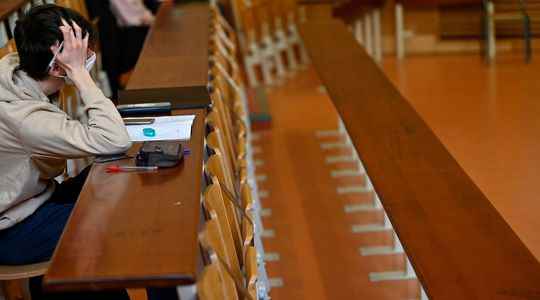It is a downside that holds the attention in the satisfaction that address, once is not custom, the public statistics to the French school system. The “Trajectories and origins” survey, published on July 5 by INSEE and INED, underlines, in fact, the capacity of higher education to welcome more and more young people from immigrant backgrounds. Everything is not perfect, but whether you are from the Maghreb, Asia or sub-Saharan Africa, access to school is improving from one generation to the next. There is, however, one exception and not the least important: Turkish immigrants and their descendants (approximately 700,000 people). In the first generation, they are average, with 5% university graduates. It is then that the dropout occurs, with barely 18% of graduates in the “second generation”, against 33% on average, all origins combined.
Several factors explain this Turkish specificity. First, immigration from this country is sociologically marked. “These populations often come from rural regions, with more modest social origins. It is therefore a more unfavorable preparatory ground for the following generations”, remarked Patrick Simon, director of research at INED, during the presentation of the ‘investigation. In this context, parents, and mothers in particular, find it more difficult to play the role of accompanying their children in their school career, which is known to be a determining factor in the success of studies.
But that’s not all. “Once in France, these immigrants live in very segregated residential contexts”, resumes, almost modestly, Patrick Simon. The previous INSEE and INED survey, conducted ten years ago, had already shown that the very frequent use of the Turkish language at home and the low proportion of mixed marriages influenced school results. . However, this life centered around the community has not changed much in a decade: 88% of immigrants from Turkey live with an immigrant spouse or descendant of an immigrant (the majority is Turkish) and they are still 69% among the second generation.
The university, not seen as a source of pride
Finally, the last element that plays on the educational path of these young people: the way families look at studies. “It is not only social inequalities in the material sense of the term that weigh, but individual postures, a desire to depend only on oneself, to succeed through money. Therefore, we encourage studies for the minimum required. And those who go to university do not enjoy particular pride in their environment or their family”, notes Gaye Petek, sociologist and co-author with Ségolène Débarre of a History of the Turks in France (Editions of the Detour). As a result, families favor diplomas allowing them to work quickly or start their own business more than pursuing higher education. At least for the boys.
For young girls, the reasons are even different: “If they live in a village, it is difficult to imagine going to university in town where they would have to live alone. And there is always the idea of a marriage. not too late, with children not too late. The developments that Turkey has known have not followed in its migratory flight”, continues Gaye Petek. Moreover, studies show that, when young women go to university, they do rather well, proof that the brakes are more social reasons than academic levels.
For a long time, the Turks of France did not worry about this dropout because young people easily found work in craft or commercial enterprises, owned by compatriots. Then, seeing unemployment hit hard on boys who left the school system early (up to nearly 21% in 2020 for descendants of Turkish immigrants), some began to sound the alarm. With little noticeable effect so far. But Gaye Petek still wants to believe it: “Perhaps that will change with the children of those who have studied in France.”
